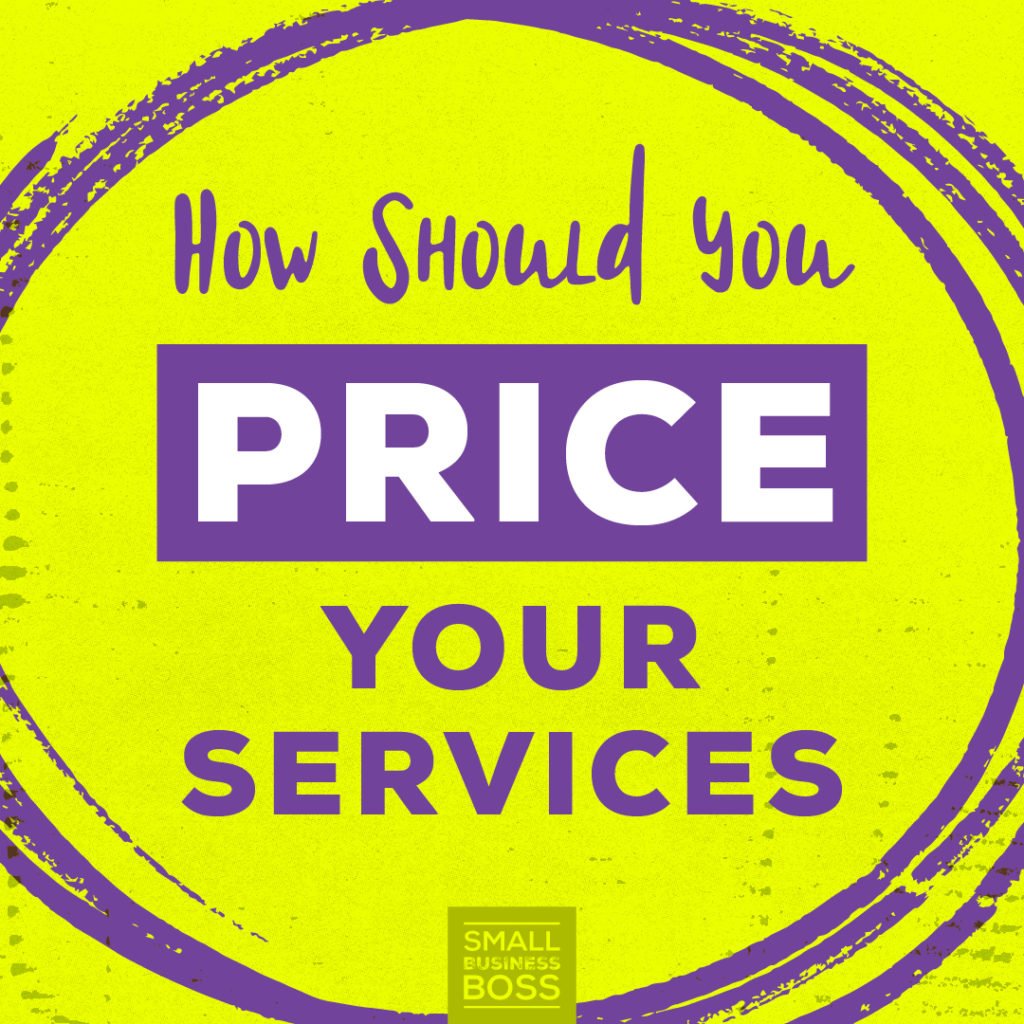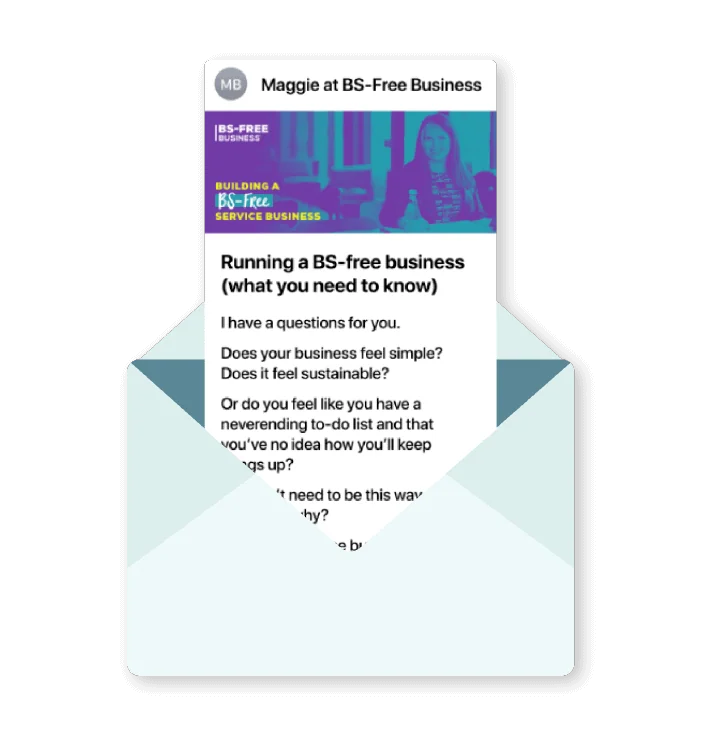
Search the site:
How Should You Price Your Services?
As a service provider, pricing can be incredibly challenging. That’s why pricing is one of the hottest questions I answer on an ongoing basis. So, how should you price your services?
Pricing is fraught with issues. We take it personally. It’s confusing. It’s nuanced. In a world where some people charge $100 and other people charge $1000 for the exact same thing, it can be hard to understand why prices vary so dramatically.
Here’s the good news: Your pricing strategy doesn’t have to be confusing or feel overly personal when you understand some basics of pricing your services.
Best of all, nailing your pricing is one of the easiest ways for you to grow your business as a service provider and make more money.
Here are three things to consider when pricing your services:
#1. VALUE
The first thing to consider when it comes to your pricing is understanding the value you deliver. You can’t set a price or sell anything if you aren’t able to articulate the value you offer your clients.
Fact: People’s willingness to pay is proportionate to how much pain they’re in. You need to be able to clearly articulate how you can help them solve whatever problem they’re having. If they aren’t crystal clear on how you can help solve their problem, they’re unlikely to pay you!
Many times, we struggle with what our value proposition is. Or we simply sell ourselves short as we don’t think we’re good enough. We tell ourselves stories about how much we should charge or what we do for our clients.
If you want to price things in a way that’s profitable, you need to nail down the value you deliver.
Ask yourself:
- What results do I deliver to my clients?
- How do these results help them succeed?
Once you can answer those three questions, you’re on your way to creating your pricing strategy as you’ll be able to articulate your value.
#2. THE MARKET
The second element of your pricing strategy is the market. This can be a heady topic, so I’m going to share some examples with you.
First, a few questions to consider:
- Who and how many are willing and able to purchase your service?
- How saturated is the market?
- What is the range of pricing in your industry? What is your position in the market?
It all comes down to supply and demand. If there are very few people who do what you do, and people are looking for your services, you can charge a premium without having to differentiate too much.
Conversely, if there are a lot of people who offer what you offer and very few people looking for the service, you can still charge a premium, but you have to position yourself as fundamentally different and better than your competition.
To figure this out, you have to do some research specific to your industry.
Let’s say you’re a bookkeeper. There are lots of bookkeepers and lots of people looking for bookkeepers. But you want to charge a premium because you’re a unicorn rockstar bookkeeper.
If you do some research, you can figure out that if you do bookkeeping for a specific niche, like law firms, then you can charge more because you are positioning yourself as THE EXPERT when it comes to bookkeeping for law firms.
The key is knowing your market and how to play in the market in a way that helps you get paid. It’s for this reason that when pricing our agency services, we use different pricing structures for corporate clients versus our small business/solopreneur clients.
#3. YOUR PRICING MODEL
The last — but arguably one of the most critical — piece of pricing is your pricing model. You need to spend some time figuring out what makes the most sense for you when pricing your services.
Usually, with services, we see people charging by the hour, which isn’t entirely wrong, but it can create a cap on your income as you’re bound by the number of hours you can possibly work.
Keep in mind that, when you’re offering services, you’re trading time for dollars no matter what you’re doing — so please, please don’t get stuck on this popular online business mantra.
The real goal should be to look at how you can give yourself a raise by considering project pricing with a flat rate. That will factor in a higher hourly rate and help you grow your income. Moving from hourly to project pricing is truly one of the most strategic things I’ve ever done in my business as it was much, much more profitable.
Also, if you’re a total pro with specialized, in-demand skills, you can take your project pricing to the next level with value-based pricing. Clients will pay a premium for specialized skills that help them solve a specific problem in their business.

I’m Maggie Patterson (she/her), and services businesses are my business.
I have 20+ years of experience with client services, am a consultant for agency owners, creatives, and consultants, and vocal advocate for humane business practices rooted in empathy, respect, and trust.
Help Not Hype

Tired of the same old BS business advice?
I got you with weekly emails packed full of proven strategy that makes a real difference in your service business.









